Amlip 10 mg
Amlip 10 mg belongs to the class of medications known as calcium channel blockers, which are used to treat hypertension (high blood pressure) and angina pectoris (chest pain). High blood pressure (hypertension) is a long-term or chronic disease in which the blood exerts a great deal of force against the artery walls. When blood pressure is up, the heart must work harder to pump blood.
Amlip 10 mg contains Amlodipine, a calcium channel blocker that functions by relaxing blood vessel walls. This reduces the heart’s burden and enables it to circulate blood more effectively throughout the body. Consequently, it assists in lowering high blood pressure, thereby reducing the risk of heart attack or stroke.
As prescribed by your physician, take Amlip 10 mg with a full glass of water, with or without meal. Amlip 10 mg may be taken alone or in combination with other blood pressure drugs, depending on your blood pressure. Inform your doctor if you are using any other anti-hypertensive medications. Common adverse effects include headaches, fatigue, and ankle edema, which often subside with time. If you have ever experienced a stroke or heart attack, or if you are taking other blood pressure drugs, you should monitor your blood pressure closely. It is suggested that you continue taking this medicine and do not stop taking it without seeing your physician first.
The mainstays of hypertension treatment include a low-sodium diet, regular physical activity (even 20 to 30 minutes of brisk walking five days a week can help! ), weight loss in obese individuals, etc. Tell your doctor if you have had an adverse reaction to Amlip 10 mg Tablet 10’s, if you are pregnant or intending to become pregnant, if you are nursing, if you have liver disease, renal disease, heart failure, a heart valve issue, or if you have suffered a heart attack.
Amlip 10 mg Tablet 10 is used to treat high blood pressure (hypertension), chest discomfort associated with the heart (angina), and to prevent heart attacks.
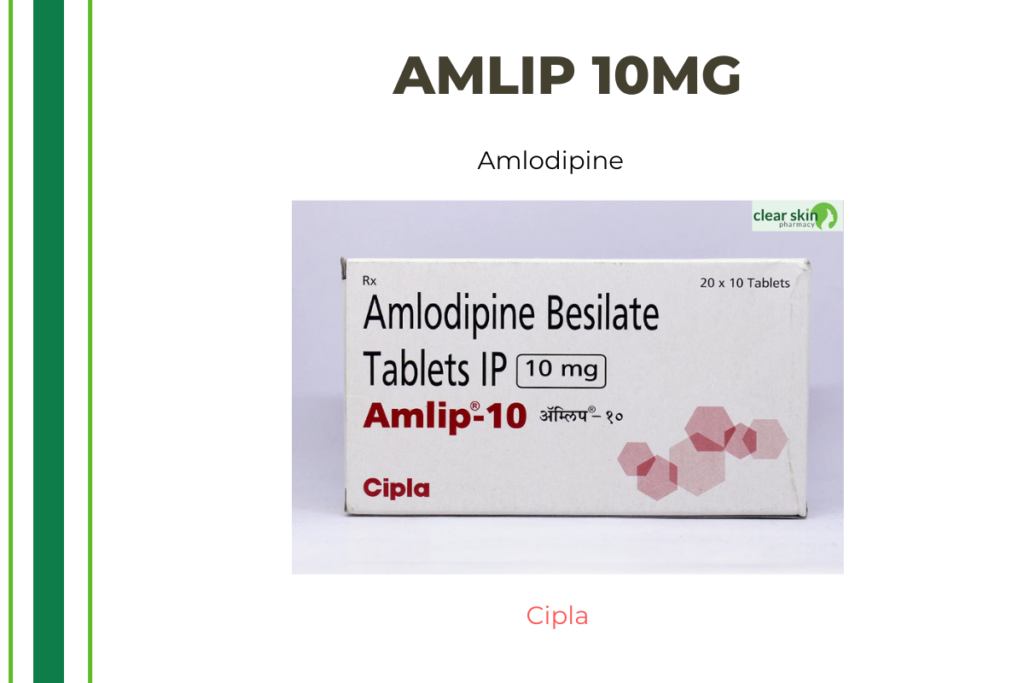
Medicinal Advantages
Amlip 10 mg is a medication used to treat cardiac conditions such as angina (chest discomfort) and hypertension (hypertension). It is a calcium channel blocker that inhibits calcium (ions) from entering the heart, so allowing smooth muscles to relax and enlarge for improved blood flow. Amlip 10 mg also prevents sudden coronary artery spasms (heart blood vessel spasms) and reduces the effort required by the heart to pump blood throughout the body, hence reducing oxygen consumption. It boosts a person’s physical activity and exercise tolerance while maintaining normal blood pressure during exercise. As a result, it safeguards and preserves your heart’s health.
Use Instructions
Amlip 10 mg may be used orally with or without meals, or as directed by your physician. With about a glass of water, completely swallow the pill. It should not be broken, crushed, or eaten. Try to take it on the same day every day. If you miss a dosage, do not double it.
Storage
Place in a cool, dry area out of direct sunlight.
Amlip 10 mg Tablet 10’s Side Effects
The majority of the adverse effects of Amlip 10 mg do not require medical treatment and diminish with time. Dizziness, lightheadedness, headache, tiredness, ankle edema, and nausea are the most common side effects of Amlip 10 mg. Everyone does not have to endure the aforesaid negative effects. However, if these adverse effects persist, visit your physician.
Precautions and Warnings
Those who are allergic to Amlip 10 mg Tablet 10’s, have low blood pressure (less than 90 mm Hg), have had a heart attack, renal sickness, liver disease, are pregnant or planning to become pregnant, or are nursing should not use Amlip 10 mg without a prescription. Aside from that, it is not advised for those with aortic stenosis (heart valve problem). Despite the fact that Amlip 10 mg can enter into breast milk, the effects on the infant are unclear. If you are nursing and using Amlip 10 mg, you should inform your doctor.
Interactions Between Drugs
Blood pressure medications (benazepril, metoprolol, ramipril, hydrochlorothiazide, etc.), lipid-lowering medications (atorvastatin, simvastatin, etc.), erectile dysfunction medications (sildenafil), antibiotics (clarithromycin, erythromycin, rifampin), and antifungal medications (itraconazole, ketoconazole) (ibuprofen, aspir
Avoid high-cholesterol and high-fat foods to prevent drug-food interactions. Avoid pickles, excess salt on salads, and other salty items in your diet
Cardiogenic shock (when the heart fails to pump enough blood to the body), heart valve issues (stenosis), low blood pressure (hypotension), liver disease, and heart failure are contraindications for the use of amlodipine.
Safety Suggestions
ALCOHOL
It is suggested that you abstain from consuming alcohol while taking Amlodipine (hypotension) to avoid unpleasant side effects, such as a drop in blood pressure.
PREGNANCY
In pregnancy, amlodipine is classed as FDA Category C. Due to a lack of evidence, amlodipine is typically not recommended as the first-line therapy for hypertension in pregnancy. If you are pregnant and have high blood pressure, you should consult your doctor.
BREAST FEEDING
According to the scant information available, amlodipine levels in breast milk are normally low and undetectable in the blood of breastfed infants. It has not been established that the use of Amlodipine while breastfeeding is harmful to nursing infants. If the mother need Amlodipine, there is no reason to discontinue breastfeeding. If you are a nursing mother, you should see your obstetrician before to using Amlip 10 mg Tablet 10’s.
DRIVING
Drive with care, as Amlodipine can cause drowsiness and impair driving abilities.
LIVER
Take amlodipine with caution, especially if you have or have previously suffered from liver disease. Your doctor may need to change your dosage depending on your medical condition and response to treatment.
KIDNEY
Amlodipine is typically safe to administer to patients with renal disease, and dosage modifications are seldom required. Your doctor will establish the appropriate dose strength based on the severity of your condition.
No habit formation
Advice on Diet and Lifestyle
With a BMI between 19.5-24.9, you can maintain a healthy weight.
Perform at least 150 minutes of regular physical activity or exercise every week, or around 30 minutes daily. This can reduce your high blood pressure by around 5 millimeters of mercury.
Select a diet abundant in whole grains, fruits, vegetables, and low-fat dairy products.
The optimal sodium chloride (table salt) consumption for most persons is 2300 mg per day or less than 1500 mg per day.
Alcohol consumption should be limited to one serving for women and two serves for men.
Stopping smoking is the greatest method to minimize your risk of heart disease.
Chronic stress can increase blood pressure, therefore you should prevent it. Attempt to enjoy and spend time with your loved ones to manage stress and practice mindfulness practices.
Monitor your blood pressure daily, and if it swings excessively, contact your doctor immediately.
Include foods and beverages high in omega-3 fatty acids in your regular diet. Low-fat cooking oils including olive oil, soybean oil, canola oil, and coconut oil can also help reduce blood pressure.
Recommendations
Amlodipine is often used to treat high blood pressure and other cardiac issues.
Amlodipine should be taken at the same time each day to maximize effectiveness and enhance compliance.
Amlodipine can cause dizziness when taken in excess. While using this medicine, avoid doing activities like driving
While taking this medication, you may suffer an abrupt drop in blood pressure, which can lead to vertigo. Changing your posture gradually may help you avoid this.
A typical adverse effect of this drug is ankle edema. Consult your physician if this or other unpleasant effects are troublesome or persistent.
Additional Information : This item is non-refundable.
Glossary of Diseases and Conditions
Blood pressure measures the power with which our heart pumps blood to all parts of the body. When blood pressure is very high, it is referred to as hypertension. This disease can lead to the development of calcified arteries (blood vessels), which restricts blood and oxygen flow to the heart. Angina (chest discomfort) and heart attack can both be brought on by hypertension (when blood supply to the heart is blocked). High blood pressure may result in brain injury (stroke) and renal failure. High blood pressure can be diagnosed with a blood pressure monitor. The systolic pressure of the heart is the power with which it expels blood. In contrast, diastolic pressure is the pressure in your heart when it is at rest between heartbeats. If your blood pressure is 140/90 mm Hg, the systolic pressure is 140 mm Hg and the diastolic pressure is 90 mm Hg. The optimal range for blood pressure is between 90/60 mm Hg and 120/80 mm Hg.
FAQ’s
If you miss to take a dose of Amlodipine, take it as soon as you recall. However, make every effort to avoid missing a dosage, and if your next dose is due, do not take both doses at once. If you take two doses of Amlodipine, you will experience low blood pressure.
As long as your physician has prescribed it, it is safe to take amlodipine. p>High blood pressure, for instance, is a chronic condition that should not be abruptly terminated without seeing a physician
Amlodipine might make you feel dizzy. It is advised that while using Amlodipine, you should not drive or operate heavy machinery. If you are feeling dizzy or faint, you should sit down until you feel better.
Amlodipine is contraindicated in patients with known allergies to any of the medication’s components. In patients with liver problems, it must be administered with care. It should also be avoided by women in their second and third trimesters of pregnancy.
It is unlikely that amlodipine will affect male or female fertility. However, the evidence is insufficient to make a conclusive statement. Consult your physician for the best medical advice.
Long-term amlodipine usage has been associated to ankle edema. When seated for extended durations, attempt to keep your feet elevated. If the issue persists, consult a physician and follow his or her instructions.
“pregnancy-induced hypertension” refers to high blood pressure that develops during pregnancy (PIH). Both the infant and the mother are in jeopardy. During pregnancy and delivery, extremely high blood pressure in the mother can cause convulsions (fits), headaches, foot edema, kidney damage, and an increased risk of bleeding. This may affect the fetus by generating an erratic fetal heart rate, increasing the chance of stillbirth, and resulting in a tiny newborn. Consequently, your blood pressure should be monitored often during your pregnancy. Consult your obstetrician if you have any concerns about your blood pressure during pregnancy.


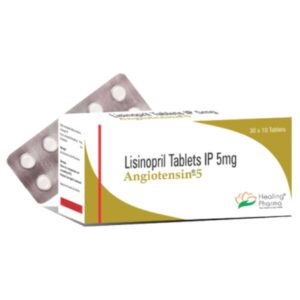


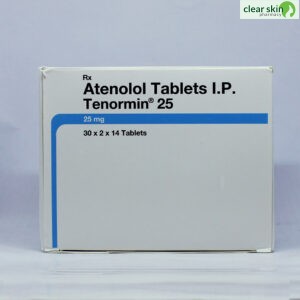
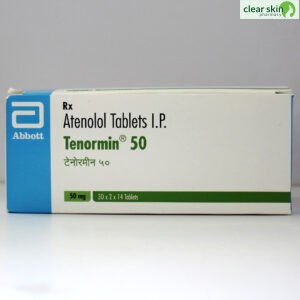
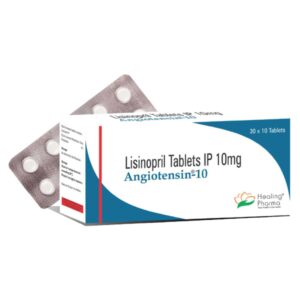
Be the first to review “AMLIP 10MG 10 tablets”